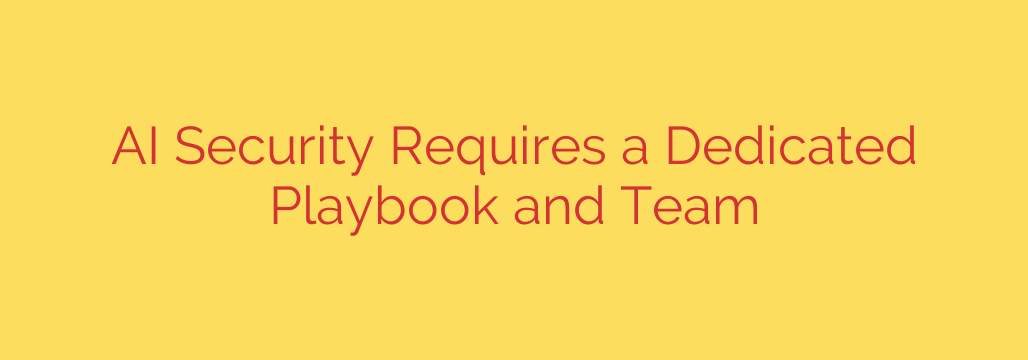
Securing the Future: Why AI Needs a Specialized Security Approach
As artificial intelligence rapidly integrates into every facet of business and society, the conversation around its security is becoming critically important. AI systems offer unprecedented capabilities, but they also introduce entirely new and complex security risks that traditional cybersecurity frameworks are not fully equipped to handle. Simply applying existing security protocols to AI initiatives is a recipe for vulnerability.
The nature of AI itself presents unique security challenges. Unlike conventional software with predictable code flows, AI models evolve, learn from data, and can exhibit emergent behaviors. This dynamic nature opens doors to novel attack vectors that target the training data, the model itself, or the inferences it produces. Risks range from data poisoning and model manipulation to adversarial attacks designed to trick the AI into making incorrect decisions.
Recognizing these distinct threats is the first step. AI security isn’t just an extension of IT security or application security; it’s a specialized discipline requiring dedicated focus and expertise.
The Need for a Dedicated AI Security Framework
Effectively mitigating AI risks demands a structured, comprehensive approach. This is where a dedicated AI security “playbook” or framework becomes essential. A robust AI security strategy must encompass the entire AI lifecycle, from data collection and preparation through model training, deployment, and ongoing monitoring.
Such a framework should outline:
- Specific risk assessments tailored to AI vulnerabilities (e.g., model inversion, membership inference, adversarial robustness).
- Security best practices for data handling, model development, validation, and deployment.
- Protocols for monitoring AI system behavior for anomalies and potential attacks.
- Incident response plans specifically designed for AI-related security breaches.
- Governance policies ensuring ethical AI use and compliance with emerging AI regulations.
Building a dedicated framework ensures that security is considered from the very beginning of any AI project, rather than being an afterthought.
Assembling the Specialized AI Security Team
Just as the challenges are unique, so too are the skills required to tackle them. Traditional security teams may lack the deep understanding of machine learning algorithms, data science workflows, and the specific vulnerabilities inherent in AI systems. A dedicated AI security team, or individuals within existing teams who possess specialized AI knowledge, are crucial.
This team should ideally include:
- Security professionals with expertise in machine learning security principles.
- Data scientists or ML engineers who understand the internal workings of the AI models being deployed.
- Researchers familiar with the latest adversarial techniques and defensive measures.
- Compliance experts tracking AI-specific regulations.
Collaboration between these specialists is key to identifying vulnerabilities, implementing appropriate defenses, and responding effectively to incidents. They are responsible for developing and implementing the dedicated AI security playbook.
Actionable Security Tips for AI Initiatives
Proactive measures are paramount. Here are some actionable tips for enhancing AI security:
- Validate and sanitize training data rigorously: Ensure data integrity and identify potential poisoning attempts.
- Implement robust model validation: Test models against adversarial examples and evaluate their resilience.
- Secure the ML pipeline: Protect the infrastructure used for data processing, model training, and deployment.
- Monitor model behavior in production: Look for performance degradation or shifts that could indicate an attack.
- Limit access to AI models and data: Apply strict access controls based on the principle of least privilege.
- Stay informed about new AI security threats: The field is rapidly evolving, and continuous learning is vital.
In conclusion, the proliferation of AI systems necessitates a fundamental shift in security thinking. Treating AI security as a distinct, critical domain with its own playbook and specialized team is not optional – it’s essential for harnessing the power of AI safely and responsibly while protecting against sophisticated new threats. Organizations that invest in a dedicated AI security strategy today will be far better positioned to secure their future.
Source: https://www.helpnetsecurity.com/2025/07/09/dr-nicole-nichols-palo-alto-networks-ai-agent-security/








